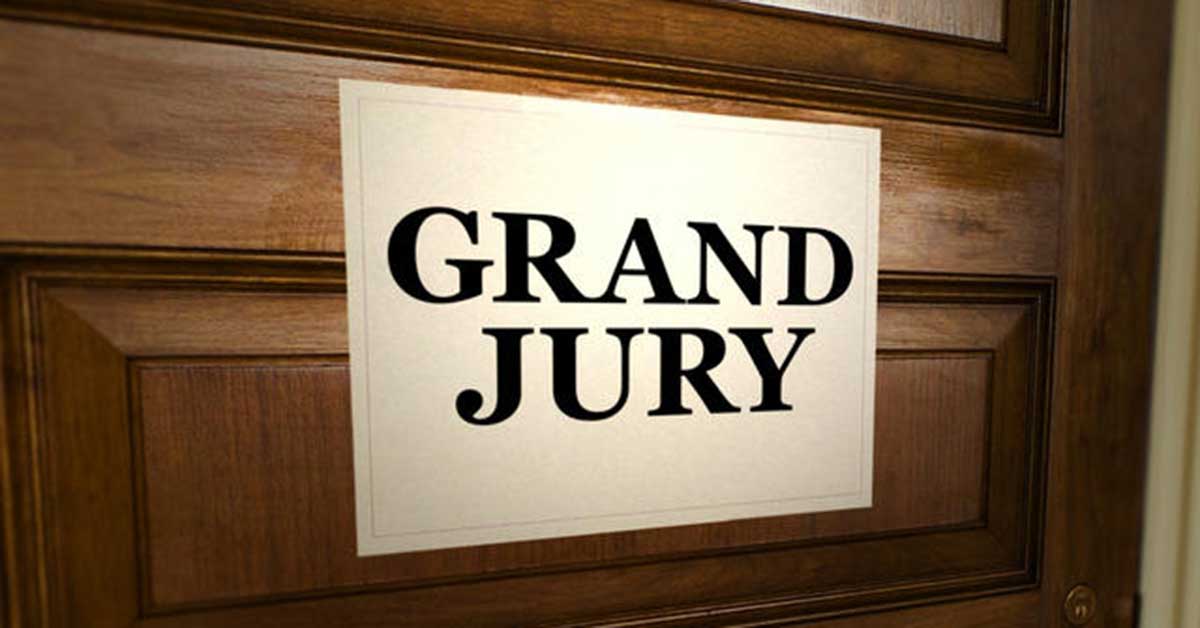The Federal Grand Jury Explained
The Purpose of the Federal Grand Jury
Quite simply, the federal grand jury exists to investigate offenses against the United States, and to fulfill the constitutional right to grand jury indictment.
The right to grand jury indictment is constitutionally required in federal felony cases. However, in non-capital cases, defendants may choose to waive their right to grand jury indictment. While the right to grand jury indictment does not extend to the states, many states have grand jury systems in place.
How the Federal Grand Jury is Organized
Federal grand juries are selected by the court in each federal judicial district. Grand jury panels are randomly selected among citizens residing in the district, and consists of 16 to 23 members. Quorum requires 16 members, while indictment requires 12 votes.
Federal grand juries sit until discharged by the court. Generally, grand juries serve for no more than 18 months, although some grand juries in larger districts serve for as long as 36 months.
The federal grand jury is not presided over by any judge. Only the grand jurors, government attorney, and witnesses are present. In most cases, the government attorney presents evidence from its investigation to the grand jury. In some cases, however, the grand jury, on its own initiative will conduct an investigation into a particular matter.
How the Federal Grand Jury Operates
Broad powers
The federal grand jury’s responsibilities necessarily require broad powers, and for this reason it enjoys sweeping authority. Because of its unique role that is enshrined in the Constitution, the grand jury has been afforded exceptional investigative powers and a high degree of deference.
A federal grand jury may begin an investigation even in the absence of probable cause or any suspicion that a crime has been committed. Further, its investigation may be triggered by information received from any source, including the personal knowledge of grand jurors themselves. In essence, the grand jury is left unrestrained to fully carry out its investigation and to look at all clues and evidence in determining whether or not a crime has been committed.
Cloak of secrecy
The federal grand jury meets behind closed doors and conducts its business in secret. Violations of grand jury secrecy rules are punishable as contempt. A close reading of the grand jury secrecy rules reveals that the rules are intended more to protect the overall workings of the grand jury rather than the minutia of information it produces – that is, the fact of disclosure to the grand jury rather than the information disclosed.
There are a number of exceptions to the federal grand jury secrecy rules. One exception is that grand jury witnesses are allowed to disclose their testimony. Another exception permits the government attorney to disclose grand jury information to other government attorneys and employees assisting in the criminal investigation that is the subject of the grand jury inquiry.
Still other exceptions allow for the disclosure of grand jury information to a subsequent grand jury panel, disclosure of foreign intelligence to government officials, disclosure in connection with a judicial proceeding, and disclosure upon a defendant’s motion to dismiss an indictment. Limited disclosure is also sometimes available pursuant to separate statutory or common law authority.
Proceedings and process
The government attorney typically arranges for the appearance of witnesses before a federal grand jury, and takes part in questioning witnesses. Witnesses are not allowed to have an attorney in the grand jury room when they testify. However, if they wish, they are allowed to request time to consult with an attorney outside of the grand jury room.
Grand jury witnesses usually appear under subpoena. Failure to comply with a grand jury subpoena is punishable as contempt. There are limited circumstances under which a witness may justifiably not comply with a grand jury subpoena. These may include the right against self-incrimination or some other legally-recognized privilege such as attorney-client privilege. However, even when a witness is able to show a privilege, they are likely to be excused only as to those matters protected by the privilege. In other words, the witness is compelled to appear before the grand jury, and then claim the privilege with respect to any relevant questions.
A federal grand jury subpoena may be quashed by the court in some circumstances. For example, a timely motion that claims the subpoena is unreasonable or oppressive because it requires the production of evidence that is irrelevant to the investigation, fails to sufficiently particularize the items to be produced, or is unreasonable in terms of the extent of effort required to comply.
A court will not quash a federal grand jury subpoena under either Fourth Amendment or Fifth Amendment privilege if the subpoena requires the witness to appear before the grand jury to provide a voice exemplar, a handwriting exemplar, or to sign a consent form authorizing the release of bank records.
Final action
The possible outcomes of a federal grand jury inquiry include an indictment, a vote not to indict, or a discharge without action.
When a federal grand jury chooses to indict, it accuses a designated person or entity with a specific crime. The indictment itself must state in plain and concise language the essential facts comprising the offense charged. It must also contain allegations of each element of the offense, and the allegations must be sufficiently distinctive such that the charges can be pleaded to bar a subsequent prosecution for the same offense.
The decision to indict rests solely with the grand jury. It cannot be required to indict or disciplined for choosing not to, even in the face of probable cause. Conversely, the government may resubmit a matter for reconsideration to the same grand jury panel or to a subsequent panel. In these circumstances, a grand jury panel may reexamine a matter regardless of the prior results of its own deliberations or those of another panel.
Once indicted, it is difficult to have an indictment dismissed. On rare occasions, a court will dismiss an indictment if it fails to charge a federal crime or if it fails to include an essential element of the charged crime. Most successful motions to dismiss an indictment rest on constitutional arguments, such as a tainted jury panel, or if the indictment is based on information obtained in violation of a defendant’s right against self-incrimination or on evidence obtained in violation of the Fourth Amendment.
Other rare instances of dismissal involve violations of due process, vindictive or retaliatory prosecution, unjustifiable delay to the detriment of the defendant, or prosecutorial misconduct such as knowingly presenting false or perjured testimony.
Conclusion
If you or a loved one become the target of a grand jury investigation or are subpoenaed to testify before the grand jury, it’s important that you know your rights and that your rights are protected. Although grand jury witnesses are barred from having counsel present when they testify, it’s still critical that they have the advice of an experienced federal criminal defense lawyer at all stages of the process.

